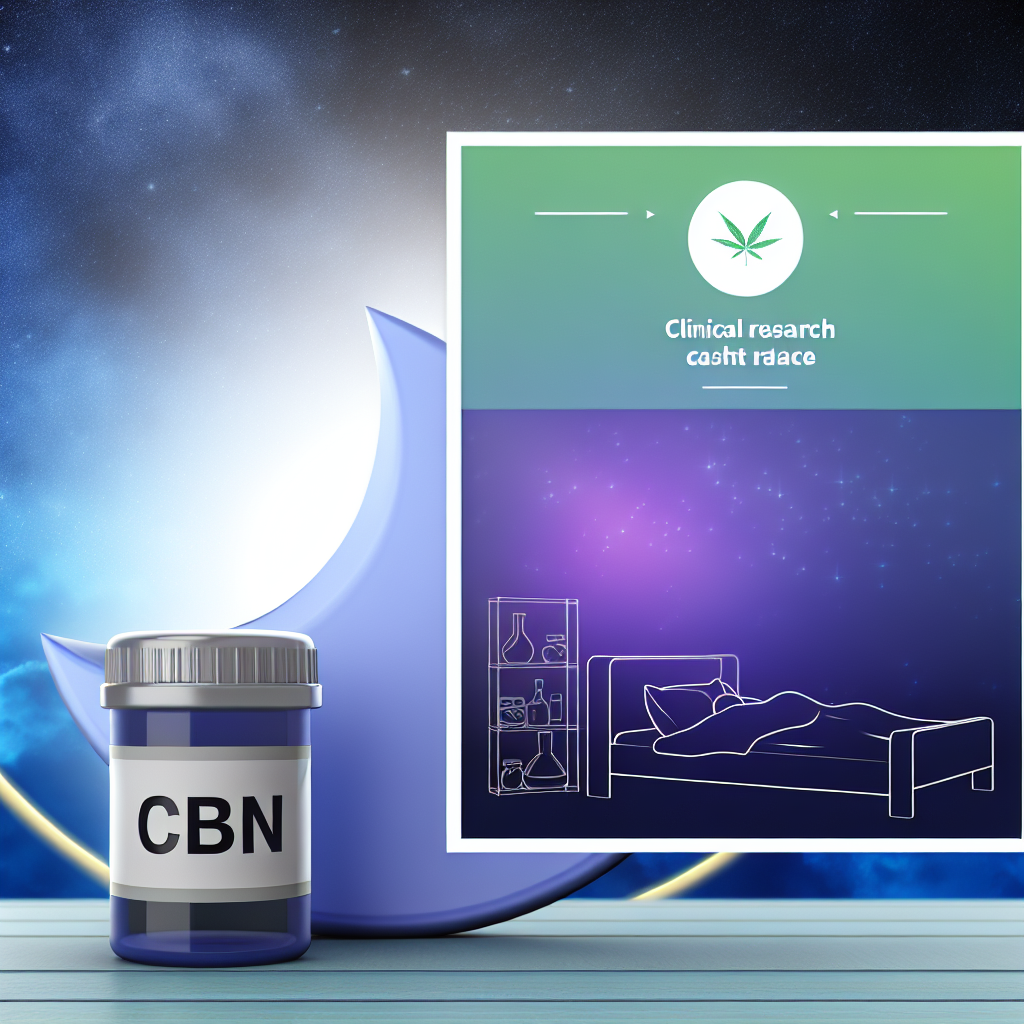CBN for Sleep: A Natural Alternative to Ambien, Backed by Clinical Research
Embracing Natural Sleep Solutions in a Pharmaceutical World
As the global wellness movement gravitates toward natural remedies, many are turning to cannabinoids as holistic alternatives to conventional pharmaceuticals. Among these cannabinoids, Cannabinol (CBN) stands out for its emerging potential as a sleep aid. Unlike its well-known cousin THC, CBN is non-intoxicating and naturally forms as THC degrades. This unique cannabinoid is now gaining attention in the scientific and medical communities, especially regarding its effectiveness in promoting restful sleep.
Sleep disorders such as insomnia, sleep apnea, and circadian rhythm disturbances affect millions worldwide. To date, prescription medications like Ambien (zolpidem) have dominated the landscape for treating sleeplessness. While effective, Ambien carries risks including dependency, tolerance, and a host of side effects—ranging from cognitive impairment to next-day drowsiness and even sleepwalking. With such concerns looming, both consumers and healthcare providers are exploring natural, non-addictive alternatives to traditional sleep aids.
CBN has surfaced as a promising candidate. Anecdotal evidence and preliminary industry studies point to its sedative properties, especially when consumed in conjunction with other cannabinoids like CBD and terpenes such as myrcene. Though cannabis science is still in its relative infancy due to decades of legal restrictions, the recent policy shifts have allowed significant progress in clinical trials and pharmacological studies involving CBN.
In the wellness space, major cannabis and hemp product manufacturers are now formulating CBN-infused sleep aids—oils, tinctures, capsules, and edibles—all designed to provide a peaceful night’s rest without the drawbacks of pharmaceutical sedatives. But are these products truly effective? Or are they riding a wave of cannabinoid hype?
Recent human and animal research suggests that CBN may live up to its reputation as a natural sleep aid. Unlike Ambien, CBN appears well-tolerated and may pose very limited risk of dependency. This sets the stage for a much-needed overhaul of how we approach sleep disorders, shifting treatment paradigms away from synthetic pharmaceuticals and toward plant-based medicine.
Clinical Studies Shine a Light on CBN as a Natural Sleep Aid
Despite its relative obscurity in the cannabinoid family tree, CBN has become a topic of increasing academic interest. Several research studies and clinical trials—though still limited in scale—support the hypothesis that CBN may function as a powerful, non-psychoactive sleep-promoting compound.
In one frequently referenced rodent study from 1975 published in the Journal of Pharmacology, researchers found that CBN enhanced the sedative effects of THC, indicating a possible synergistic relationship for sleep induction. Though dated, this research laid critical groundwork for future cannabinoid sleep studies.
A more recent preclinical study published in early 2021 by Steep Hill Labs suggests that CBN may have strong sedating properties independent of THC. According to their findings, 5mg of CBN is reported to be equivalent to 10mg of diazepam (a prescription benzodiazepine) in terms of body relaxation and sleep onset—especially when combined with terpenes like myrcene and linalool, also found in calming herbs like lavender and hops.
In November 2022, a human-focused clinical trial by Radicle Science evaluated consumer outcomes from using CBN-dominant products nightly over four weeks. The decentralized study involved over 1,000 participants and found statistically significant improvements in:
– Sleep onset latency
– Overall sleep quality
– Reduced nighttime awakenings
Notably, no serious side effects were reported, supporting CBN’s profile as a well-tolerated and non-addictive option.
Further support comes from a peer-reviewed meta-analysis in the journal Medicines (February 2023), which assessed the impact of various cannabinoids on sleep. The findings indicated that CBN- and CBD-rich formulations could reduce sleep disturbances by up to 30% compared to a placebo. Researchers added that cannabinoids offer “a low-risk and increasingly evidence-based intervention for improving sleep behavioral outcomes.”
How Does CBN Actually Work for Sleep?
The exact mechanism behind CBN‘s sleep-inducing effects remains under investigation, but several theories exist based on its interaction with the human body.
CBN likely works through the endocannabinoid system (ECS), specifically the CB1 receptor, which influences arousal and sleep-wake patterns. Additionally, there’s growing evidence that CBN may interface with GABA receptors in the brain—similar to benzodiazepines but with a gentler onset and significantly fewer side effects.
Further pharmacological studies are ongoing. One noteworthy clinical trial launched in 2024 by Zelira Therapeutics in collaboration with the University of Western Australia is one of the first double-blind, placebo-controlled human studies comparing CBN isolates directly to Ambien. This kind of rigorous research could provide the definitive answers long sought by both practitioners and patients.
The Future of Sleep Wellness is Here
Traditional sleep medications like Ambien undoubtedly have a place in modern medicine, particularly for short-term treatment. However, their risk profiles and potential for dependency are leading healthcare professionals and consumers to seek safer, natural alternatives.
Cannabinol (CBN) offers a promising plant-based solution. Backed by preliminary research, anecdotal success stories, and emerging clinical evidence, CBN could soon redefine how sleep disorders are managed—ushering in a new era of restorative, non-habit-forming wellness solutions.
As research and regulation continue to evolve, CBN is poised to become a key player in the science of sleep.
Summary (100 words):
Cannabinol (CBN) is a non-intoxicating cannabinoid that shows promise as a natural sleep aid. Unlike prescription sleep medications like Ambien, CBN appears well-tolerated and non-addictive. Preliminary research, including human clinical trials, suggests CBN can improve sleep onset, quality, and duration, with fewer side effects. As the global wellness movement gravitates toward plant-based remedies, CBN is poised to redefine how sleep disorders are managed, offering a restorative, non-habit-forming alternative to synthetic pharmaceuticals. With ongoing studies and evolving regulations, CBN is emerging as a key player in the science of sleep.




